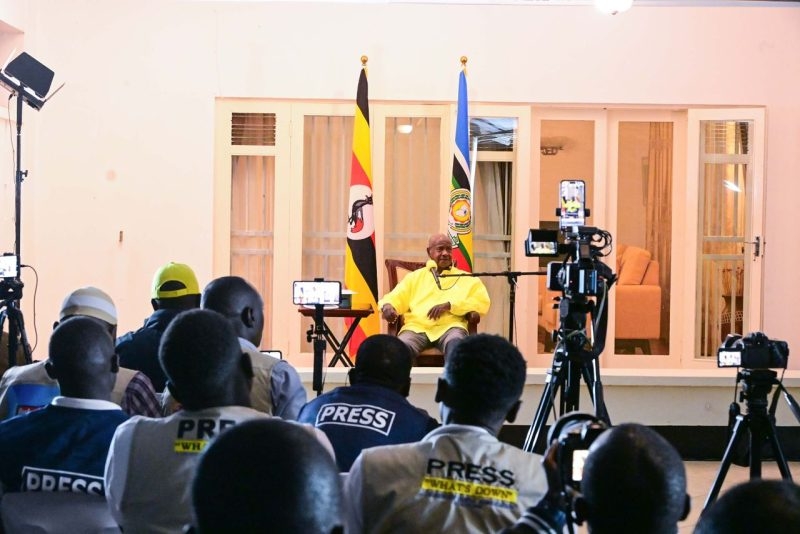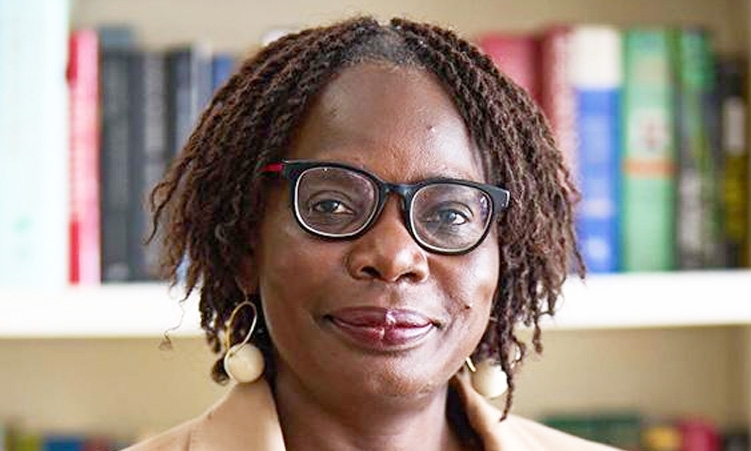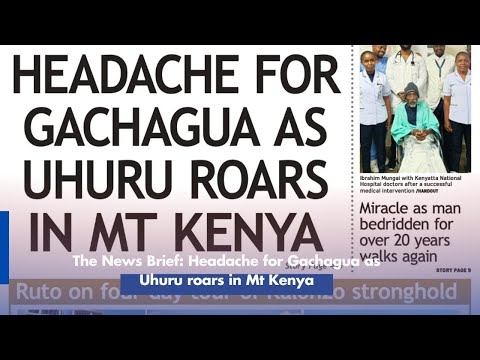 President Kiir congratulates his Vice President, Bol Mel, at State House, Juba. /FILE
President Kiir congratulates his Vice President, Bol Mel, at State House, Juba. /FILESouth Sudan President Salva Kiir has fired his powerful Vice President Benjamin Bor Mel just eight months after appointing him.
Last night Kiir also removed Dr. Mel as his deputy in the ruling Sudan People's Liberation Movement (SPLM), according to a presidential proclamation issued from State House, Juba.
The President further decreed Bel’s demotion from General to the rank of Private and dismissal from the National Security Service.
"Pursuant to the provisions of Section 51(4) of the National Security Service Act, 2014 (as amended), I, Salva Kiir Mayardit, President of the Republic of South Sudan and the Supreme Commander of All Regular Forces, do hereby demote Gen. Dr. Benjamin Bol Mel to the rank of Private, and he is hereby dismissed from the National Security Service (NSS)," the November 12 decree read on the state broadcaster.
Mel’s close associate Addis Ababa Othow was also sacked as Governor of the Bank of South Sudan (Central Bank) and replaced by Yeni Samuel Costa.
Another of Mel’s ally Simon Akuei, has been removed as Commissioner General of the South Sudan Revenue Authority (SSRA) with William Anyuon Kuol being named his replacement.
Paul Logale was relieved from his role as SPLM Secretary General with Kiir appointing Akol Paul Kordit as the new SPLM Secretary General.
The changes that came following early speculation that Mel was under ‘house arrest’ after security at his homes was downscaled on Wednesday morning are seen as a surprise to many observers in South Sudan, as Dr. Mel (47) was perceived as Kiir’s preferred successor.
Dr. Mel who is sanctioned by the United States government over corruption allegations, was considered the natural successor of Kiir following his meteoric rise in both the army and government.
Mel was promoted from Lieutenant General to full general in mid-September in the Internal Bureau of the National Security Service (NSS); the rank he has now been stripped of.
It was Mel’s third major elevation in less than a year, fueling speculation over his growing influence in Juba, as he was then considered the presumptive successor of Kiir.
The 52-year-old Bol Mel was appointed vice president and head of the government’s economic cluster in February, replacing veteran politician Dr. James Wani Igga.
And in May, he was named First Deputy Chairman of the ruling Sudan People’s Liberation Movement (SPLM) party.
In his appreciating message after September promotion, the Vice President appeared to be hinting at Kiir’s plan and also linked his rise to first lady Mama Mary Ayen Mayardit, and her family, for ‘supporting me and raising me under her wing.’
“Throughout my career, H.E. the President has guided me and challenged me to take on greater responsibilities in my service to the nation, and I remain committed to living up to that trust.”
Mel was sanctioned by the United States government in 2017 over corruption allegations based on suspicions that his construction company received preferential treatment in the awarding of government contracts.
The company was sanctioned by the US Treasury Department, but this did not deter Kiir from elevating his key ally.
It's not clear if Kiir was responding to a recent United Nations Commission on Human Rights in South Sudan (CHRSS) published a scathing accusation against Bol Mel of systematic looting that has deepened poverty and hunger across the country.
The report, titled “Plundering a Nation: How Rampant Corruption Unleashed a Human Rights Crisis in South Sudan,” found that Bol Mel and allied elites diverted billions in public funds for personal gain, leaving over 90% of planned infrastructure projects unbuilt.
“Instead of directing national wealth toward serving the population, the country’s political leaders have systematically diverted both oil and non-oil revenues through corruption and unaccountable schemes entrenched throughout government,” said Commissioner Barney Afako.
In total, the UN Commission estimates that $2.2 billion was siphoned off-budget, worsening a humanitarian crisis in which two-thirds of South Sudan’s 12 million people now face crisis-level food insecurity.


















